A successful EuroVelo & Cycling Tourism Conference reflecting on local ownership and legacy of cycling events
The Conference brought together around 150 participants from 24 countries. The programme, spanning over two days of debates and sessions, was successfully balanced with 27 women and 29 men sharing the stage in Tinghallen, a modern conference venue in the heart of the city.
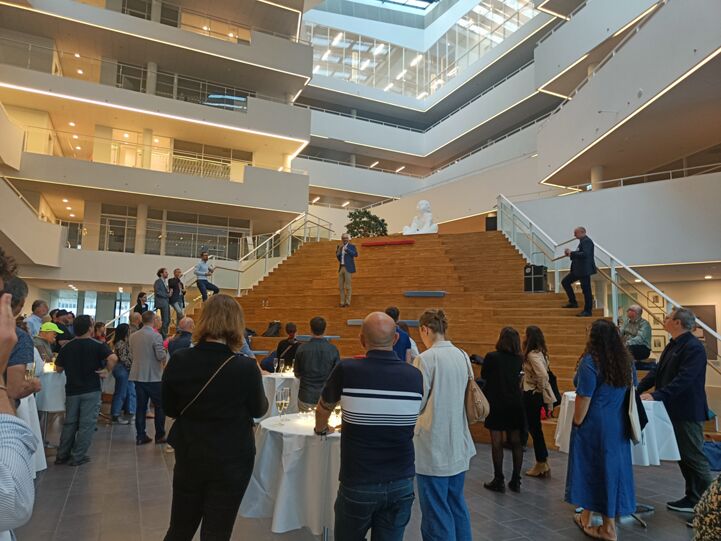
On Monday, after the EuroVelo General Meeting, the EuroVelo & Cycling Tourism Conference started with a welcome reception in Viborg Town Hall. After a surprise show of incredible cycling skills by the youth of Viborg and a glass of bubbles, it was time to kick off the Conference with welcome speeches by Andreas Grønnebæk Horn, head of conventions at VisitAarhus, who said: “It is in the history and legacy of Viborg to bring people together, get ideas and get passion flowing. VisitAarhus saw lots of potential in this Conference, because the Danes love bikes and Viborg has itself a lot of potential for cycling tourism.”
Jens Erik Larsen, one of the founding fathers of EuroVelo in the 1990s, brought everyone to the roots of the initiative and reflected on its development, almost 30 years later. He reminded us that the first EuroVelo sign in Denmark was placed right here in Viborg!
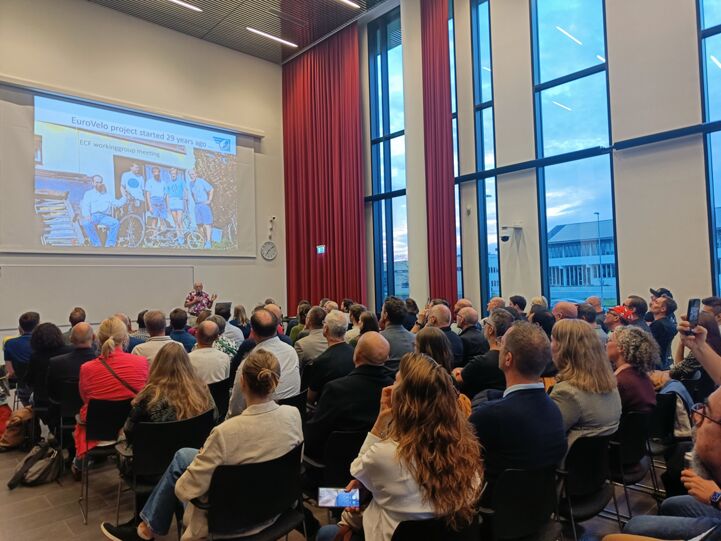
It was the first time that the Conference took place this far north, so Marie Kåstrup and Henna Palosaari had a lively exchange about what cycling and cycling tourism mean for the Nordic countries. Both in Denmark and Finland, people grow up cycling, and the bicycle is a definite part of the culture, but it is used more for daily mobility than for recreational purposes. The stunning nature and outdoors must be paired with appropriate cycling infrastructure and services to encourage more people to go on cycling holidays.
Marie and Henna shared two concepts to understand (cycling) culture in the Nordics: Sisu, which in Finnish means the determination and resilience to keep going, despite a situation looking challenging, and Hygge, a Danish word that means enjoying the small wonders of life, such as bike ride with friends, and cherish what makes a place magical.
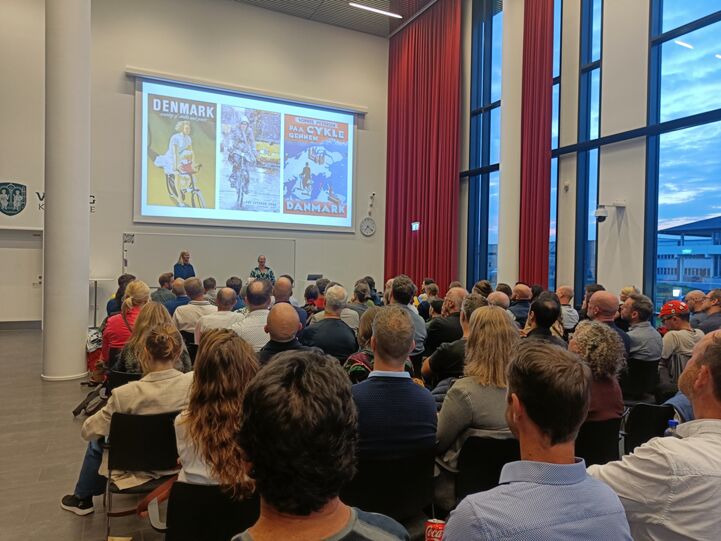
A morning full of Inspiring keynotes and plenary sessions
Tuesday was a full day of conference activity, with two plenary sessions, six keynote speeches and six parallel sessions matching the theme of the Conference, built thanks to the abstracts collected earlier in the year.
The Mayor of Viborg, Ulrik Wilbek, opened the Conference highlighting that Viborg is located on EuroVelo 3 – Pilgrims Route, following the Hærvejen route in Denmark and reminded participants of the legacy of events such as the country’s biggest Gran Fondo and local L’Etape by Tour de France.
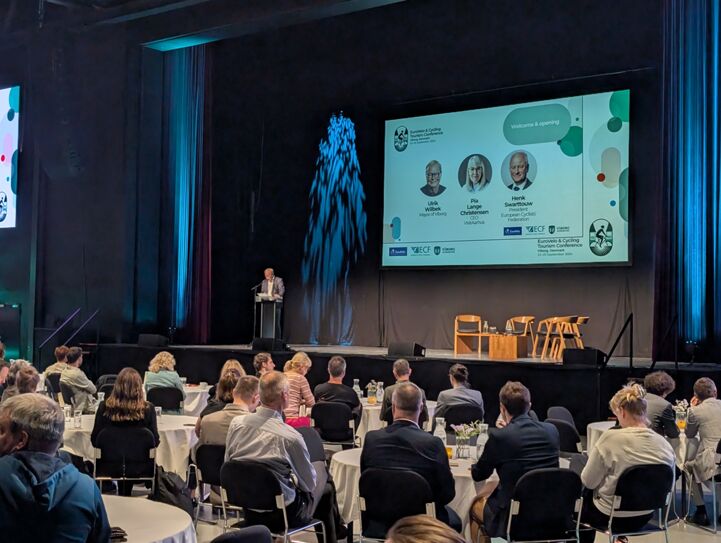
Pia Lange Christensen, CEO of VisitAarhus – the regional tourism board that supported the event – spoke as a proud local about the fact that Viborg is a historical meeting place, an ideal location for cycling tourism. Cycling tourism is a priority for the local destination marketing organisation, considering the interest in nature and outdoors.
ECF President Henk Swarttouw greeted the community and recalled how the roots of the EuroVelo initiative are in Denmark and that the main users of EuroVelo routes are citizens and daily users, along with cycling tourists. The connection between the recreational and daily mobility aspects is therefore very important to consider and discuss.
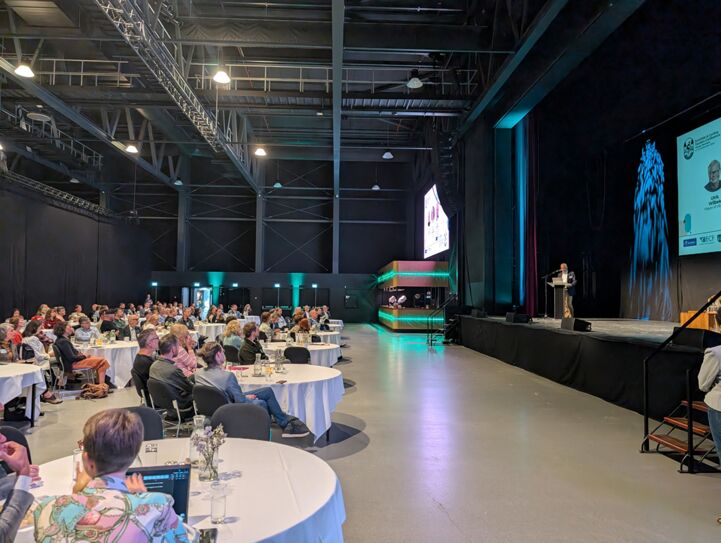
The first plenary session of the day, moderated by ECF CEO Jill Warren, was about the European Declaration on Cycling and its impact on cycling tourism, while a designate European Commissioner on Sustainable Transport and Tourism has just been appointed by Ursula von der Leyen, Apostolos Tzitzikostas. The declaration was signed in April of this year following multiple high-level political commitments from the European parliament and member states, and constitutes the most ambitious EU cycling initiative to date, containing a chapter on cycling tourism and multimodality as well as stressing the role of long-distance cycle routes.
After a recorded address by Isabelle Vandoorne of the European Commission, the panelists discussed the importance of national efforts, such as the Hungarian Cycling Strategy publication. State Secretary for Active Hungary Máriusz Révész reminded that Hungary is the third country in Europe for bicycle usage, more strongly in rural areas than in cities, and that one of the objectives is to increase cycling in large towns and cycling tourism by 150% with better route networks and improved safety.
Patricia Carmona Redondo of UN Tourism highlighted the commitment of the agency for sustainable tourism development and the importance of the Memorandum of Understanding with ECF regarding cycling tourism promotion, renewed in 2024. She insisted on how cycling tourism connects cities and rural areas, mentioning some Best Rural Tourism Villages that are crossed by EuroVelo routes.
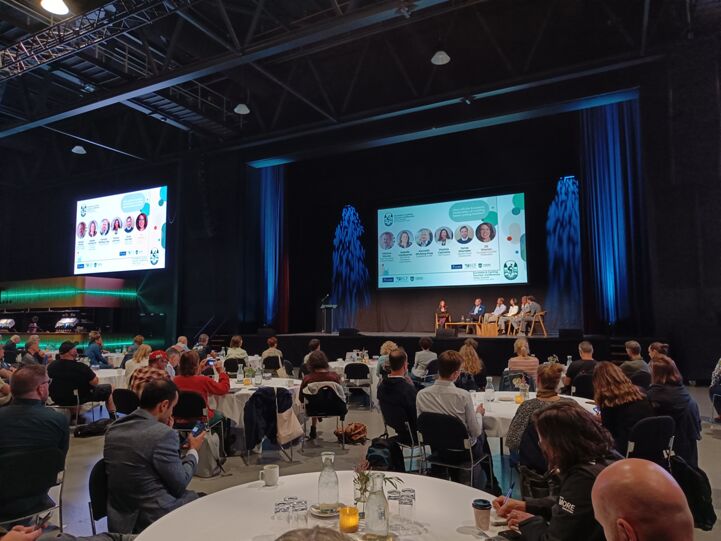
Jonas Wamsler of the Danish Road Directorate commented that the Declaration offered an ideal framework to advocate and work towards a revision of the Danish National Cycling Strategy, and Kenneth Øhrberg Krag added that the Declaration is important for political and lobbying work at the national level, offering an ideal advocacy framework.
All speakers agreed that the declaration has a positive impact on improving data, services, and infrastructure for all, as well as general tourism policy.
In the following keynote speech, Noémie Rousset of Velo & Territoires and Mikkel von Seelen of Udvikling Hærvejen presented two best practices of strategy to develop cycling tourism: the French initiative to make the country the biggest cycling tourism destination in Europe, and the partnership to develop Hærvejen, the Danish stretch of EuroVelo 3, as a hiking and cycling trail with public and private funding.
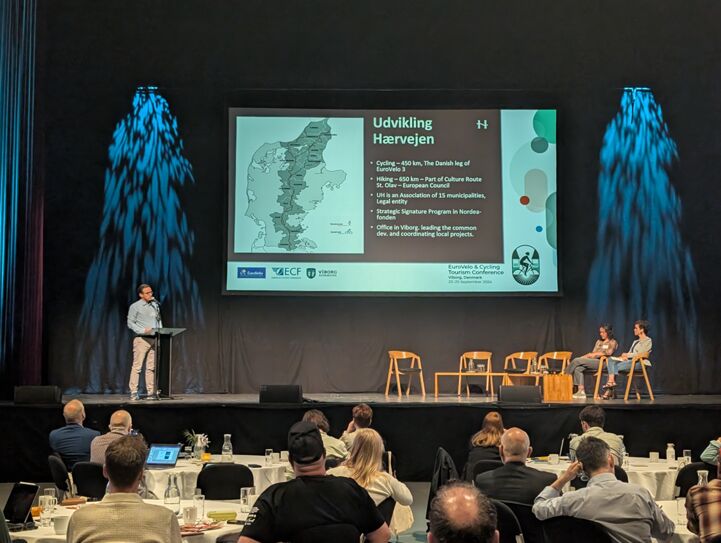
An afternoon of engaging parallel sessions and plenaries
After a much-deserved coffee break, the participants split into three groups for three parallel sessions: a fast-pedal talk about cycling events promoting cycling practice, with Eva Malovrh presenting Velo-city’s impact on the 2023 host city of Leipzig. Another session focused on the diversity of cycling tourists and on understanding it thanks to a variety of surveys and innovative ways to tailor cycling tourism products and offers; a lecture focused on geographical data to develop cycle routes and different projects and understandings of data sources.
The afternoon sessions continued with three more parallel sessions, this time on cycle route projects and how they can contribute to highlight local assets, on community engagement through volunteering for the creation, development, patrolling and improvement of cycling and mountain bike trails with speakers from Canada, Italy, Sweden and Hungary. A more technical session reflected on the concept of quality cycle route networks and diversity in standards among European countries.
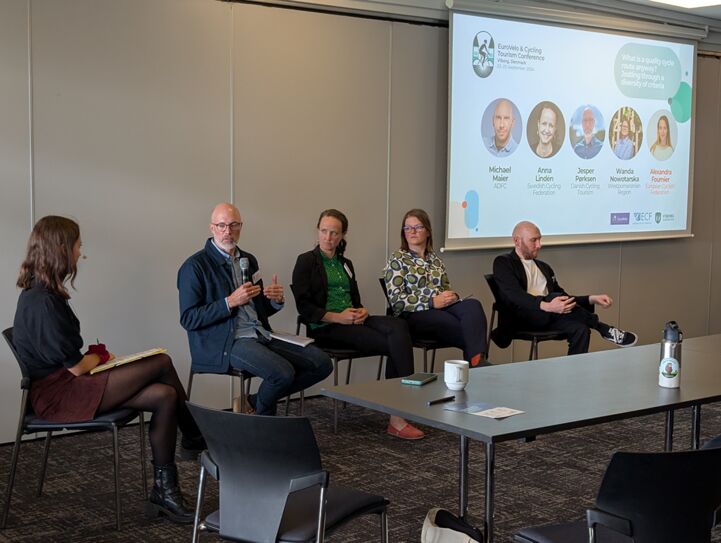
The participants gathered again in the plenary hall for a much-awaited panel on the impact and legacy of large events in encouraging cycling – such as the Tour de France, the Paris 2024 Olympic and Paralympic Games, and the UCI World Cycling Championships 2023 in Scotland. Henrik Lundorff of the City of Copenhagen reflected on the role of the Tour de France Grand Depart in 2022 to celebrate the culture of the bicycle in a national context of decreased cycling usage and lift political ambitions, as well as connecting sport and daily cycling.
All this is already present in the Tour de France, as confirmed by Cyrille Tricart from A.S.O., who also mentioned the importance of Tour de France, a free event, for cycling culture in France and beyond and for inspiration, now even more for women cycling following the launch of the Tour de France Femmes in 2022. Cyrille also presented some commitments of Tour de France to reduce its carbon footprint and contribute to support cycling developments all around the world.
Paula Ward from South of Scotland Enterprise highlighted how the UCI World Cycling Championships in Scotland last year required a huge investment, but how the results could be deeply measured in terms of citizen participation, social impact (for example the inclusion of para-cycling events), as well as value and broadcast capability. The event was a catalyst for change, especially because a legacy plan was anticipated very early in the event planning phase and is still ongoing.
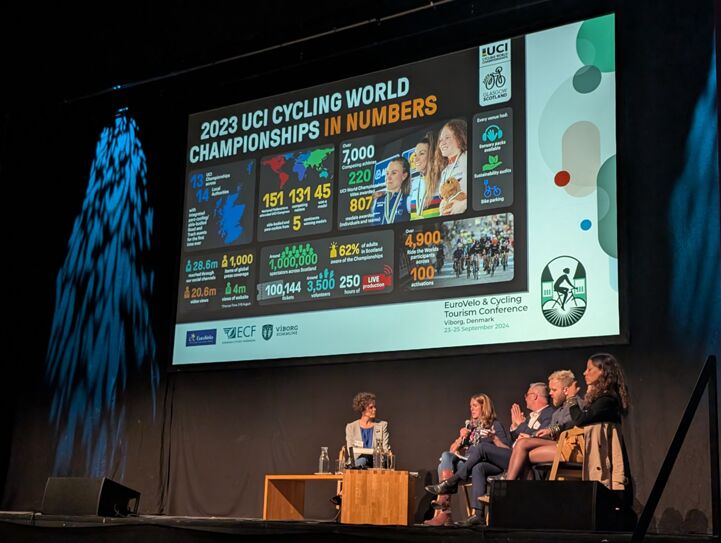
Ivana Cabello and Louisa Soualmi Rascle of Île-de-France Mobilités explained the efforts to make the Paris Olympic and Paralympic Games 100% accessible by bicycle for the first time, with bike rental offers for visitors, residents and workers, improved intermodality at stations, and a dedicated Olympic cycle route network for all venues to be accessible by bicycle. Very recent figures show a modal share of 5% for cycling during the event, with more than 200,000 additional bike trips in July compared to an average month. This modal shift is particularly impressive considering the 7 million visitors during the event.
The last session of the day focused on data about cycling tourism, with Eco-Counter’s Alice Kervran presenting the latest EuroVelo Usage Monitoring data. In the first eight months of 2024: there were 111 million bike counts on the 540 counting sites along EuroVelo routes. Over a five-year period, traffic on EuroVelo routes has increased by 10%, even if there is a general stability of bike counts in 2024 compared to 2023.
It was then time to present the results of the cycling tour operator survey done by ECF in cooperation with the Adventure Travel Trade Association and CycleSummit. All results can be consulted in the report and are commented in an article exploring the key findings.
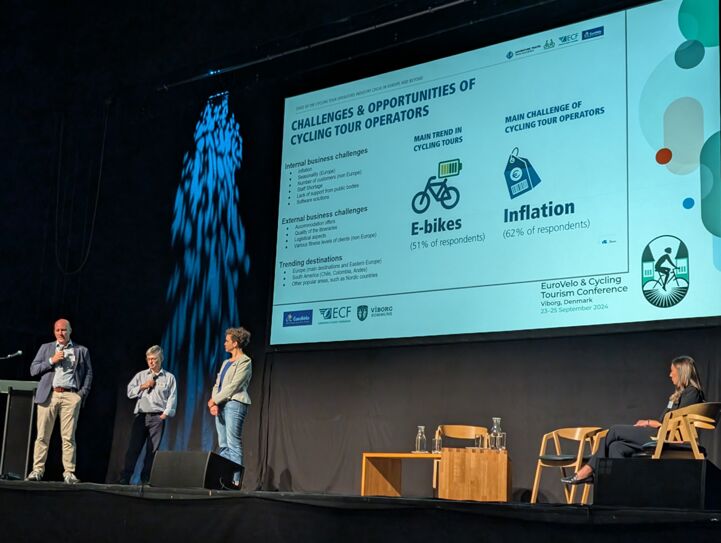
To conclude the EuroVelo & Cycling Tourism Conference, ECF CEO Jill Warren was joined on stage by Jesper Pørksen, the EuroVelo Council Chair, to announce the host city of the 2025 edition of the event: Balatonfüred, Hungary, on EuroVelo 14 – Waters of Central Europe. The lake town will host the EuroVelo and cycling tourism community from 24 to 26 September 2025. We look forward to welcoming you there!
A walking tour of the city offered participants a chance to explore the beautiful host town before a standing dinner to continue networking and sing along with Viborg’s choir on Tuesday evening.
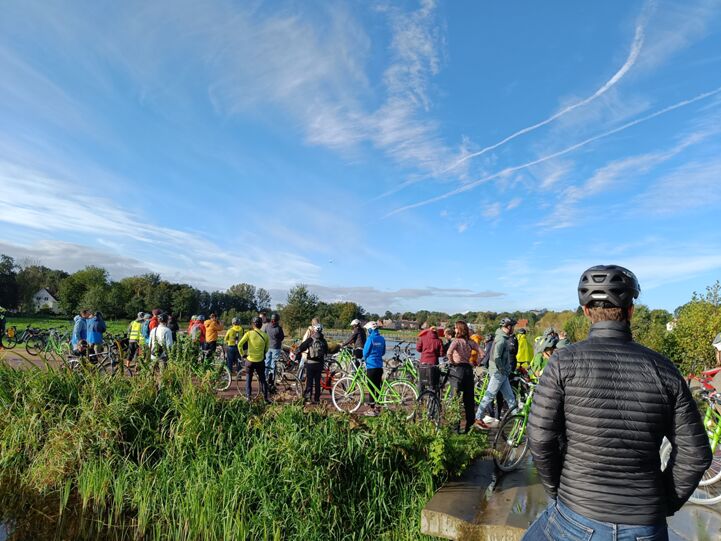
Two technical visits to Viborg wrapped up the events: a mountain bike visit to a track just outside of town guided by Outdoor Arena, and a tour along beautiful lakes and ancient fortresses under typically changeable Danish weather.

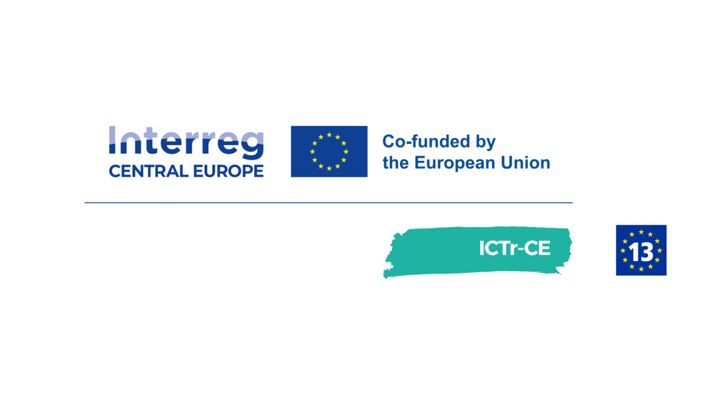
The Interreg South Baltic, Baltic Biking Upgrade, and, Interreg Central Europe, ICTr projects were represented at the EuroVelo & Cycling Tourism Conference 2024 and information about both projects were disseminated at the EuroVelo booth.